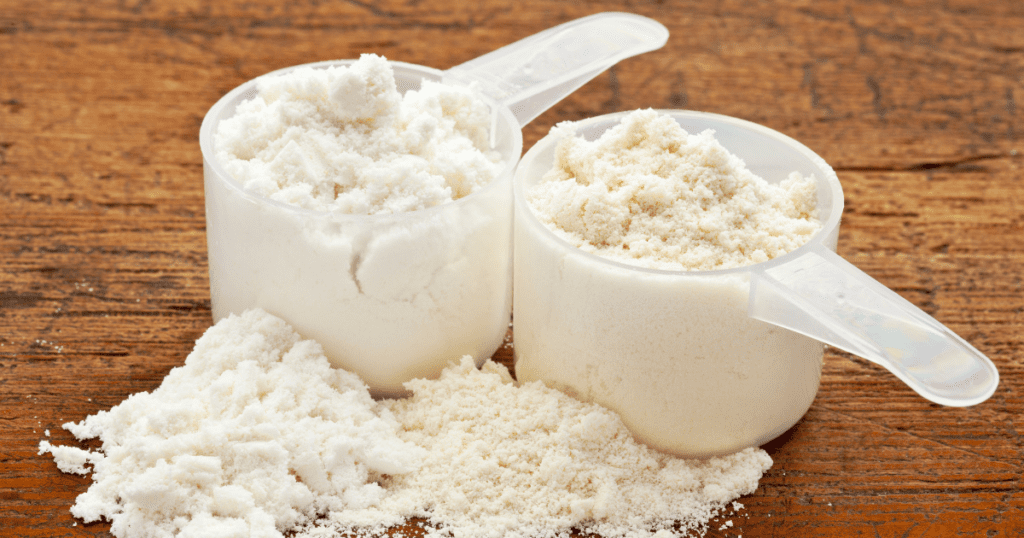In the quest for a healthier lifestyle, we often find ourselves navigating the complex world of supplements and nutrition. One term that frequently pops up in this journey is “lean whey protein.” But what exactly is it, and why is it gaining so much attention in the health and fitness community? Let’s delve into the details and uncover the secrets behind this powerhouse of nutrition.
Understanding Lean Whey Protein
Lean whey protein is a high-quality protein supplement derived from milk during the cheese-making process. It consists mainly of whey protein isolate and whey protein concentrate, making it a rich source of essential amino acids crucial for various bodily functions.

Sources of Lean Whey Protein
The primary sources of lean whey protein are dairy products, with milk being the raw material for its production. The whey undergoes a filtration process to remove most of the fats and carbohydrates, leaving behind a concentrated, protein-rich solution.
Nutritional Profile and Benefits
Boasting an impressive nutritional profile, lean whey protein provides a concentrated source of protein, low in fats and carbohydrates. It is a complete protein, meaning it contains all the essential amino acids necessary for muscle repair, immune function, and overall well-being. The benefits extend beyond muscle building, making it a versatile supplement suitable for various health goals.
Types of Lean Whey Protein
Whey Protein Isolate
Whey protein isolate undergoes further processing to remove almost all fats and lactose, resulting in a purer form of protein. It’s an excellent choice for those with lactose intolerance or anyone looking to minimize calorie intake while maximizing protein content. However, it’s essential to consider the potential drawbacks, such as the removal of beneficial nutrients during processing.
Whey Protein Concentrate
Whey protein concentrate retains more fats and carbohydrates than isolate, making it a slightly less refined option. While it may not be as protein-dense, it contains more bioactive compounds and nutrients due to the less aggressive processing. This makes it a preferred choice for individuals who want a more balanced approach to their protein intake.
Why Choose Lean Whey Protein?
Weight Management
One of the key reasons to opt for lean whey protein is its role in weight management. The high protein content helps promote satiety, reducing overall calorie intake and aiding in weight loss or maintenance.
Muscle Building and Repair

For fitness enthusiasts, lean whey protein is a go-to supplement for muscle building and repair. The amino acids it provides are crucial for synthesizing new muscle tissue and repairing damage caused by intense physical activity.
Immune System Support
The immune system relies on adequate protein intake for optimal function. Lean whey protein, rich in immunoglobulins and lactoferrin, can contribute to a robust immune response, helping the body defend against infections and illnesses.
Enhanced Nutrient Absorption
Protein plays a vital role in the absorption of essential nutrients, such as vitamins and minerals. Including lean whey protein in your diet can enhance nutrient absorption, ensuring your body makes the most of the nutrients it receives from food.
Incorporating Lean Whey Protein into Your Diet
Recommended Daily Intake
Determining the right amount of lean whey protein depends on various factors, including your age, weight, activity level, and health goals. As a general guideline, many experts recommend 0.36 grams of protein per pound of body weight. Adjusting this based on individual needs and goals can help optimize results.
Timing and Frequency of Consumption
To maximize the benefits of lean whey protein, consider incorporating it into your daily routine strategically. Consuming it post-workout can aid in muscle recovery, while having it as a snack between meals can help curb hunger and maintain a steady supply of amino acids throughout the day.
Suitable Food Pairings
While lean whey protein can be consumed independently, combining it with other nutritious foods can enhance its overall impact. Consider blending it into smoothies with fruits and vegetables, or mixing it with yogurt and granola for a tasty and nutritious snack.
Potential Side Effects and Precautions
Allergies and Sensitivities
While whey protein is generally well-tolerated, some individuals may be allergic to dairy proteins. It’s crucial to be aware of any potential allergies or sensitivities before incorporating lean whey protein into your diet. If you experience any adverse reactions, consult with a healthcare professional.
Overconsumption Risks
As with any supplement, moderation is key. Consuming excessively high amounts of protein, including lean whey protein, can strain the kidneys and lead to other health issues. It’s essential to stay within recommended daily intake levels and consult with a healthcare professional if you have concerns.
Consulting with a Healthcare Professional
Before making significant changes to your diet or incorporating new supplements, it’s advisable to consult with a healthcare professional or a registered dietitian. They can provide personalized advice based on your individual health needs and goals.
Comparing Lean Whey Protein to Other Protein Sources
Plant-Based Proteins
While lean whey protein is derived from dairy, plant-based proteins offer an alternative for individuals following vegetarian or vegan diets. Comparing the amino acid profiles, digestibility, and overall nutritional content can help individuals choose the protein source that aligns with their dietary preferences and requirements.
Casein Protein
Another dairy-derived protein, casein, differs from whey in terms of digestion rate. Casein is slower-digesting, providing a sustained release of amino acids over a more extended period. The choice between whey and casein often depends on individual goals and preferences.
Egg White Protein

Egg white protein is a high-quality source of essential amino acids. It offers a complete protein profile and is suitable for those with dairy allergies or sensitivities. Comparing the taste, texture, and nutritional content can help individuals decide between lean whey protein and egg white protein.
Popular Lean Whey Protein Brands and Products
Reviews and Comparisons
Navigating the array of lean whey protein options on the market can be overwhelming. Reading reviews and comparisons of popular brands and products can help narrow down choices based on factors such as taste, mixability, and ingredient quality. Keep in mind that individual preferences may vary, so exploring different options can be beneficial.
Factors to Consider When Choosing a Product
When selecting a lean whey protein product, consider factors such as protein content, additional ingredients, flavor options, and any specific dietary preferences or restrictions. Some products may include added vitamins, minerals, or flavorings, so reviewing the ingredient list can ensure the product aligns with your nutritional goals.
Recipes and Creative Ways to Use Lean Whey Protein
Smoothies and Shakes
Creating delicious and nutritious smoothies and shakes is a popular way to incorporate lean whey protein into your diet. Blend it with fruits, vegetables, and a liquid of your choice for a refreshing and protein-packed beverage. Experiment with different flavor combinations to find your perfect mix.
Baking and Cooking Ideas
Lean whey protein can be a versatile addition to various recipes, including baked goods and savory dishes. Incorporate it into recipes for pancakes, muffins, or even homemade protein bars. Experimenting in the kitchen can add a nutritious boost to your favorite meals.
DIY Protein Bars
For those who prefer a more hands-on approach, making your protein bars allows you to control the ingredients and tailor the flavor to your liking. Combine lean whey protein with nuts, seeds, and natural sweeteners for a homemade, nutrient-dense snack.
Real-life Experiences with Lean Whey Protein
The fitness and wellness community is filled with inspiring success stories of individuals who have experienced positive transformations with the help of lean whey protein. These stories often highlight improvements in muscle mass, weight management, and overall well-being. While individual results may vary, these testimonials can offer motivation and insights into the potential benefits of incorporating lean whey protein into your lifestyle.
Transformations and Achievements
Whether it’s achieving fitness goals, overcoming weight loss plateaus, or simply feeling more energized and focused, lean whey protein has played a role in numerous success stories. Exploring these transformations can provide encouragement and motivation for those considering adding this supplement to their routine.
Don’t Miss: Are Black Raisins Good For You? – Healthy Naari
Conclusion
In conclusion, lean whey protein stands as a versatile and potent tool for individuals looking to optimize their nutrition and fitness goals. Its rich amino acid profile, coupled with various health benefits, makes it a valuable addition to a well-rounded diet. Whether you’re focused on weight management, muscle building, or overall health and wellness, incorporating lean whey protein can be a step toward achieving your desired outcomes.
As you embark on your journey with lean whey protein, remember that individual needs and preferences vary. Experiment with different forms, flavors, and recipes to find what works best for you. And, of course, consult with healthcare professionals or nutrition experts if you have specific health concerns or questions.
The world of nutrition is ever-evolving, and lean whey protein continues to be at the forefront of innovative dietary solutions. Embrace the power of this nutrient-packed supplement and unlock the potential for a healthier, more vibrant you. Cheers to your journey of well-being!
FAQs
- Is lean whey protein suitable for people with lactose intolerance?
- Absolutely! Lean whey protein isolate, in particular, undergoes processing to remove most lactose, making it a great option for individuals with lactose intolerance. However, it’s always wise to check product labels for any residual lactose content.
- How much lean whey protein should I consume daily?
- The recommended daily intake varies based on factors like age, weight, and activity level. As a general guideline, many experts suggest around 0.36 grams of protein per pound of body weight. Tailor this to your unique needs and goals for optimal results.
- Can lean whey protein help with weight loss?
- Absolutely! Lean whey protein is a fantastic ally in weight management. Its high protein content promotes a feeling of fullness, reducing overall calorie intake and supporting weight loss or maintenance goals.
- Are there any potential side effects of consuming lean whey protein?
- While lean whey protein is generally well-tolerated, individuals with dairy allergies or sensitivities should exercise caution. Additionally, excessive consumption may strain the kidneys, so moderation is key. Consult with a healthcare professional if you have concerns.
- When is the best time to consume lean whey protein for optimal results?
- Timing matters! Consuming lean whey protein post-workout aids in muscle recovery, while having it as a snack between meals helps maintain a steady amino acid supply. Experiment with timing to find what suits your routine and goals best.
